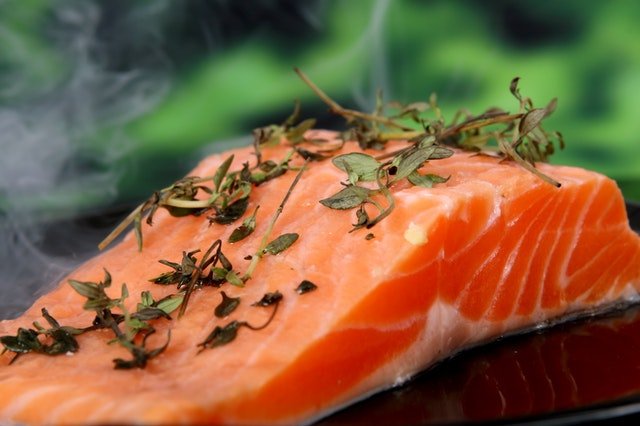
In a recent study, researchers from the University of Eastern Finland found that eating fatty fish could increase HDL cholesterol (“good” cholesterol) in people with glucose metabolism problems.
The changes of HDL make them beneficial for heart health.
The study also found that camelina sativa oil could decrease the harmful IDL cholesterol (“bad” cholesterol) in the body.
The HDL lipoprotein is commonly known as “the good” cholesterol, although the health effects of HDL particles actually are dependent on their size and composition.
The IDL lipoprotein, on the other hand, is the precursor of LDL, which is also known as “the bad” cholesterol.
Earlier research has shown that large HDL particles are linked to less risk of cardiovascular diseases, whereas a small HDL particle size may increase the risk.
Previous studies also have shown that long-chain omega-3 fatty acids found in fish have a beneficial effect on lipoprotein size and composition.
Camelina oil, on the other hand, is rich in alpha-linolenic acid, which is an essential omega-3 fatty acid whose links to lipoproteins aren’t well understood yet.
In the study, the researchers examined the effects of camelina oil and fatty fish intake on HDL and LDL.
The team recruited 79 Finnish men and women aged between 40 and 72, and with impaired glucose metabolism.
All of the participants were divided into 4 groups for a 12-week intervention: the camelina oil group, the fatty fish group, the lean fish group, and the control group.
People in the lean and fatty fish groups ate lean or fatty fish four times a week, and people in the camelina oil group used 30 ml of camelina sativa oil daily.
Participants in the control group ate fish once a week, and the use of camelina oil and other oils containing alpha-linolenic acid, such as rapeseed oil, was not allowed.
The researchers found that eating fatty fish increased the size and lipid composition of HDL and that the use of camelina oil decreased the number of harmful IDL.
Both of these changes could help reduce the risk of cardiovascular diseases.
Eating lean fish, however, was not linked to changes in HDL and LDL.
The study is published in Molecular Nutrition & Food Research.
Copyright © 2018 Knowridge Science Report. All rights reserved.



